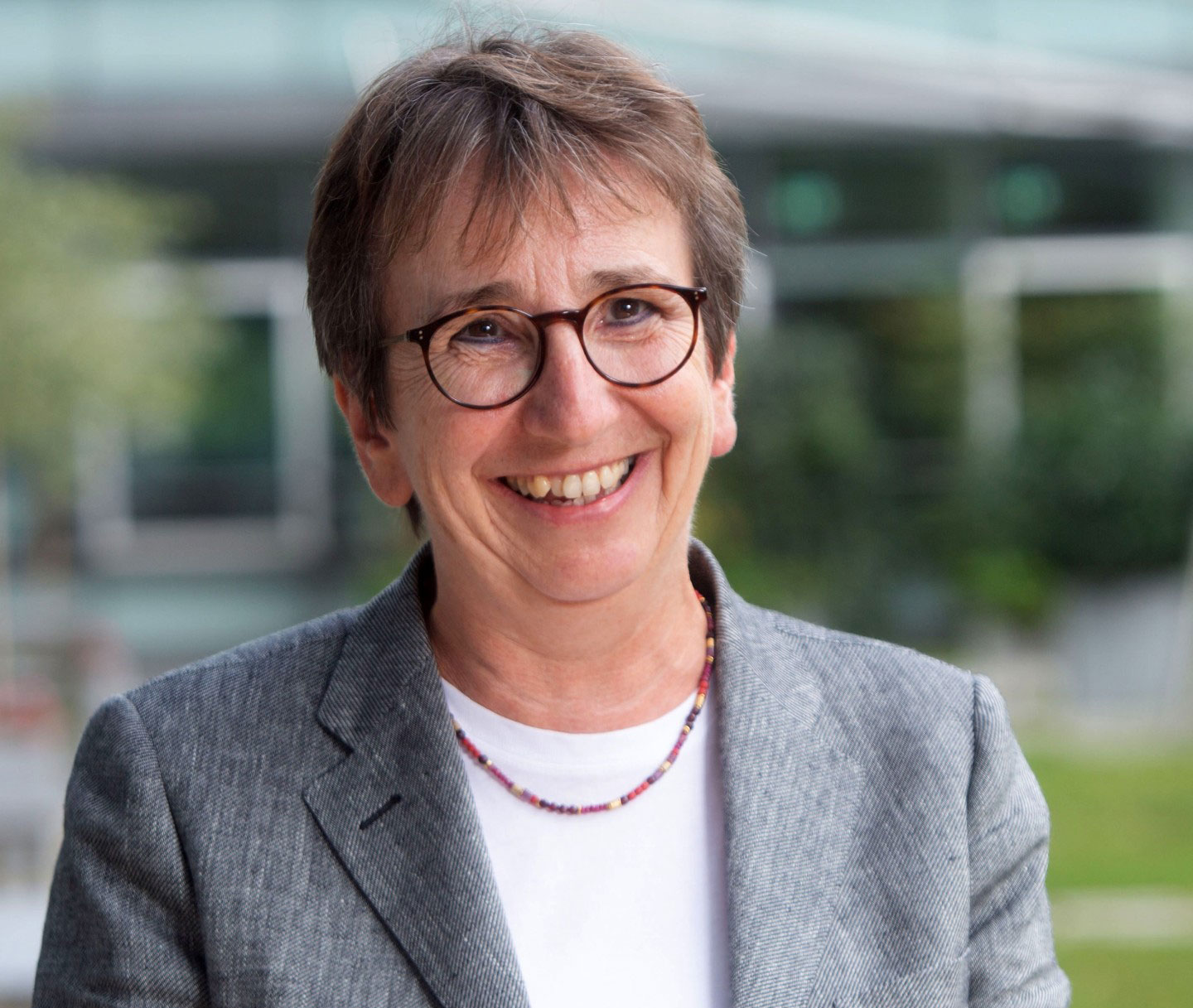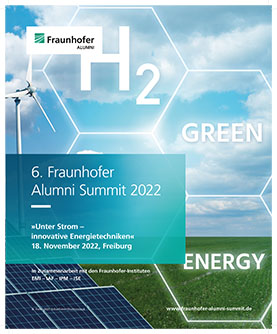What was your experience of this integration?
GMD was structured differently and it was a lot smaller. Also, less funding came from third parties. There was a lengthy discussion — which sometimes got very political — about whether the integration was for the best. A lot of people at Birlinghoven wanted to retain autonomy.
An integration such as this must be implemented quickly, the different cultures need to be brought together and everyone needs to meet on equal terms. In the process of this integration, there was a lot that did not go to plan. However, there was some good that came from our failures: We improved the methods for managing further integration, such as that of the Forschungsgesellschaft für Angewandte Naturwissenschaften (FGAN). We learned from our experiences.
Are you still in touch with your colleagues from back then?
It is really important to maintain contact. I still fondly remember one of my colleagues who onboarded me back at the German Aerospace Center. She did not have an academic background herself, which meant that — although I was an absolute novice — I had a higher salary than she did, even though she was a goldmine of information. She was not certain why her department needed a lawyer, so she challenged me and gave me seemingly questionable tasks, like figuring out the service anniversaries of the executive board. This is not a trivial matter in civil service law, so I needed to read up on it. At first I was annoyed that I had to take on this task as a lawyer. Eventually, though, I understood why. While intensively working on this issue, I was able to convince this colleague that I was committed, and a friendship blossomed between us that continues to this day. I am still in touch with other former colleagues from different areas, especially those from my time at Birlinghoven. Another reason why these types of connections are so important is because they are a part of our lives. I am also a member of the alumni network of the German University of Administrative Sciences in Speyer.
Fraunhofer-Alumni e. V. is now an office under your responsibility and you are also involved in this association as a member of its advisory council. In your opinion, what are the association’s most important objectives?
We founded Fraunhofer-Alumni e. V. in 2016 because we knew that our career model was missing something. At Fraunhofer, we live by our motto: “Individual knowledge transfer.” This means attracting young people, igniting their enthusiasm for our research areas and fostering their talent so that they can re-enter the labor market as qualified professionals. Before the association was founded, the networking element for the period following employment at Fraunhofer was missing. After all, of course, we want to stay in contact with our alumni.
Several Fraunhofer institutes had been actively organizing alumni events for years and we saw just how much added value these connections provided. So, together with the institutes, we made the decision to establish an alumni network for the entire Fraunhofer world. We wanted to reinforce the idea that we are a Fraunhofer family — even after employment at Fraunhofer.
Our top priority is to provide a space for current and former Fraunhofer employees to meet, network and discuss topics and projects. This creates fresh momentum and drives new ideas, thoughts and approaches to solutions. There are many former Fraunhofer employees in high-level positions who are happy to cooperate with Fraunhofer. Why shouldn’t we use this association as a platform to give current and former Fraunhofer employees the chance to work together to develop and generate projects?
We also aimed to use the platform to connect our highly qualified alumni with the companies that are the association’s sponsoring members. However, because Fraunhofer experts are in high demand on the labor market, this instrument is currently not practical.
Despite the association’s digital formats, meetings have been difficult to organize in recent months.
The coronavirus obviously put the brakes on meetings and networking. I like to think back to the 2018 Alumni Summit in Aachen. It was incredible to witness the different discussions and interactions among the visitors. I was particularly impressed at how quickly and enthusiastically everyone came together and the high standard of discussions on specialized topics. At the institute visits, our alumni really enjoyed getting to know Fraunhofer once again from an inside perspective and to find out about our latest research projects. Regardless of whether the visitors knew each other before the event, they all had one thing in common: their past connection to Fraunhofer.
This is all the more reason to look forward to the next Alumni Summit on November 18 in Freiburg, which will hopefully be an in-person event once again. Participants can look forward to guided tours of the institutes and many opportunities for networking at the evening event.
Even in day-to-day work, cooperation — in other words, bouncing ideas off each other, encouraging creative thinking and collaboration — offers invaluable added value. I therefore agree when our executive board says that we want to go back to the office and spend half our working time there. This doesn’t concern concentrated “quiet work,” which can be done from home with good results. However, daily working life really lacks personal interaction. As regards the coronavirus, I think that we will have to learn to live with it.
Where does Fraunhofer-Alumni e. V. go from here?
I would love to start a discussion on what adds the most value to the association and its members. Should there be a greater focus on human resources — in other words, should I act as mediator, referring former employees to sponsoring members or back to the Fraunhofer-Gesellschaft — or should the association prioritize transfer, innovation and IP management? We should make better use of the association’s platform in order to encourage Fraunhofer and its alumni to start thinking collectively, providing momentum for new topics. However, this requires change. Personally, I will continue to be involved in the association, but I believe that this transfer aspect is the way forward right now and that it could be a way to convince other institutes of the added value of this association.
Many consultancy firms and universities have large alumni networks, so it is clear that they keep in touch and stay connected. This culture also exists at Fraunhofer. With so many wonderful people and valuable contacts, continuing to be part of the Fraunhofer family offers unbelievable added value to everyone.
When members of the alumni community meet Fraunhofer employees abroad, you can see their eyes light up. The connection is immediately there. Something familiar in an unfamiliar place. Or when someone assumes a new leadership role in an industrial company and can take up projects with the Fraunhofer-Gesellschaft because of their past experience with our organization.
We should use this platform to offer everyone these opportunities and make the most of them. We therefore need to inspire people and show them that this alumni network benefits everyone. This will be a challenge to implement after the pandemic and given the latest developments; however, I am still convinced that Fraunhofer-Alumni e. V. is a good thing and important.
What might this new future look like?
There are, for example, plans for Prof. Kurz’s executive unit to create a digital marketplace where industrial companies can approach the institutes with their problems and questions. It is a question of what Fraunhofer-Alumni e. V. should take responsibility for and what topics or contacts can be passed on. Greater cooperation with the Innovation, Transfer and IP Management executive unit would clearly be beneficial for ideas like this.
And I would like to take this opportunity to once again urge everyone to come into the office and look for opportunities to interact with your colleagues. After observing many conversations in the courtyard of Fraunhofer headquarters, it is clear to me that these interactions offer completely different possibilities compared to formal meetings. This also means that the association needs to consider the people with whom we should collaborate more closely in order to move forward in this new world.
Thank you for speaking with us, Ms. Ewen.

